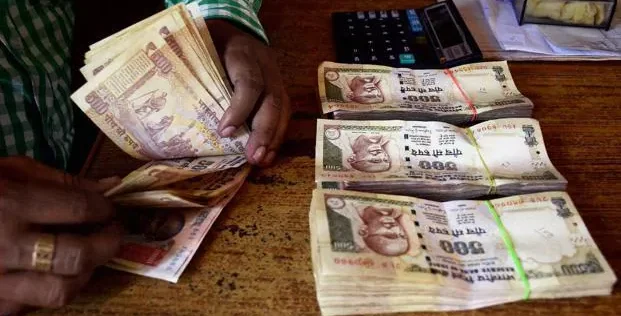Kolhapur : Nearly nine years after the Indian government’s dramatic demonetisation move in November 2016, eight District Central Cooperative (DCC) banks in Maharashtra are still grappling with an unusual and increasingly costly problem: what to do with Rs 101.2 crore in demonetised currency notes that continue to lie in their vaults. Despite repeated appeals, the Reserve Bank of India (RBI) has refused to accept the money, citing missed deadlines and regulatory non-compliance. The banks, in turn, are stuck with a massive logistical and financial burden — safeguarding large volumes of now-worthless Rs 500 and Rs 1,000 denomination notes.
Kolhapur DCC Bank Tops the List
Among the eight banks, the Kolhapur DCC Bank holds the largest amount of demonetised currency — Rs 25.3 crore, primarily in Rs 500 notes. It is followed by Pune DCC Bank with Rs 22.2 crore. These banks have been forced to store the defunct currency securely, spraying anti-termite chemicals on the bundles every three months and keeping them locked away in specially designated rooms.
ALSO READ: Empanelment for Speakers, Trainers, and Cyber Security Experts Opens at Future Crime Research Foundation
An official from one of the DCC banks, said: “We paid the depositors to whom the cash belonged in valid new currency at the time. Now, this demonetised stash has become a liability. If the RBI continues to reject it, we may be forced to write it off as a loss, which is both unfair and damaging.”
A Post-Demonetisation Dilemma
When the demonetisation decision was announced in 2016, cooperative banks across India were initially permitted to accept old Rs 500 and Rs 1,000 notes. However, the RBI soon barred District Central Cooperative banks from depositing or exchanging these notes, citing concerns about compliance and money laundering.
In June 2017, the central government provided partial relief, allowing the DCC banks to exchange scrapped notes — but only if they were deposited within the original window set by the RBI in November 2016. Unfortunately, many of the notes now stuck with the banks were received after this period, rendering them ineligible for exchange.
Statewide Impact
At the time of demonetisation, Maharashtra’s 31 DCC banks collectively held Rs 2,270 crore in demonetised notes. The Pune DCC Bank alone accounted for Rs 811 crore, while Satara had Rs 399 crore. Most of this amount was later resolved or exchanged, but the remaining Rs 101.2 crore held by eight banks has become a long-standing unresolved issue.
ALSO READ: Now Open: Pan-India Registration for Fraud Investigators!
A managing director of one of the banks explained: “The RBI has maintained a firm stance that any notes deposited after the official deadline are not valid for exchange. But these funds belonged to our account holders, and we did our duty by crediting them with new currency. Now, the demonetised stock is an accounting nightmare.”
The Silent Crisis
Beyond financial losses, the situation underscores the bureaucratic limbo faced by cooperative banking institutions that serve rural and semi-urban populations. These banks have not only borne the operational costs of safeguarding the currency for almost a decade but also face audit and regulatory complications due to the unaccounted-for liabilities on their books. With no relief in sight and the RBI standing firm on its conditions, the demonetised currency remains physically intact but economically void — a symbol of unresolved post-demonetisation fallout.



